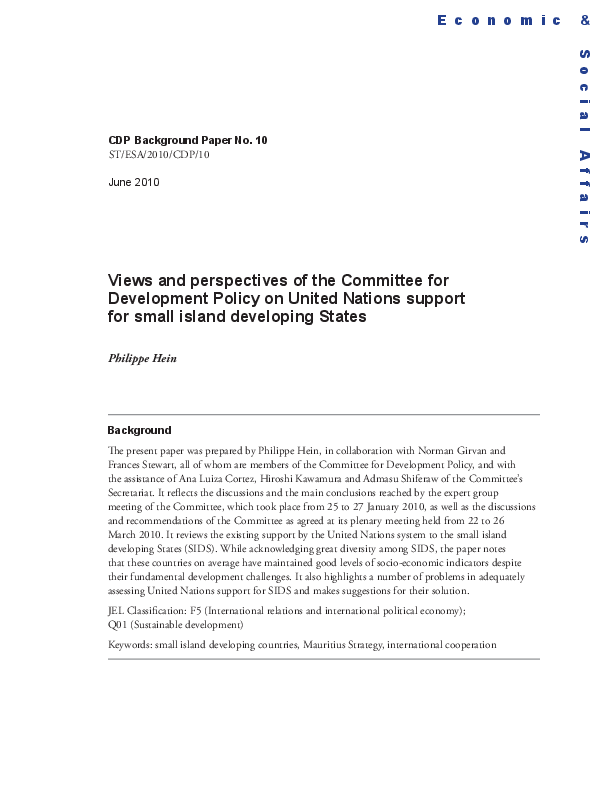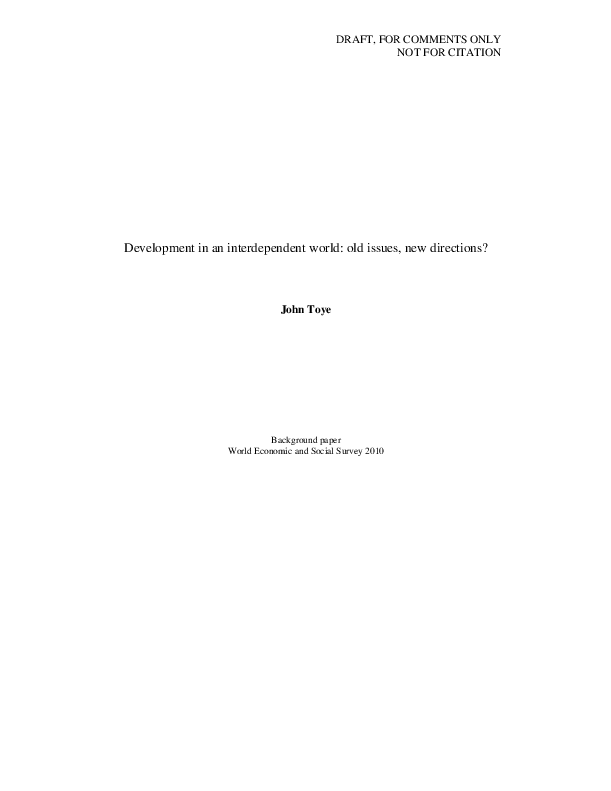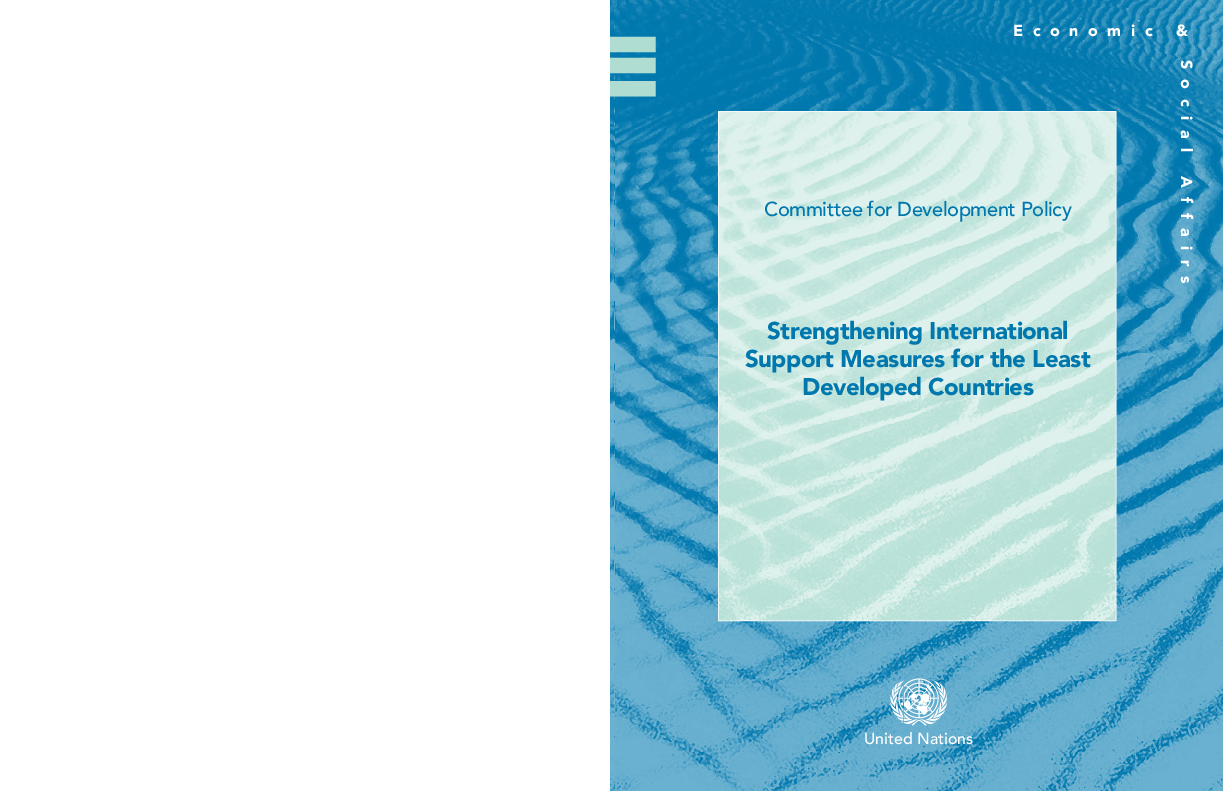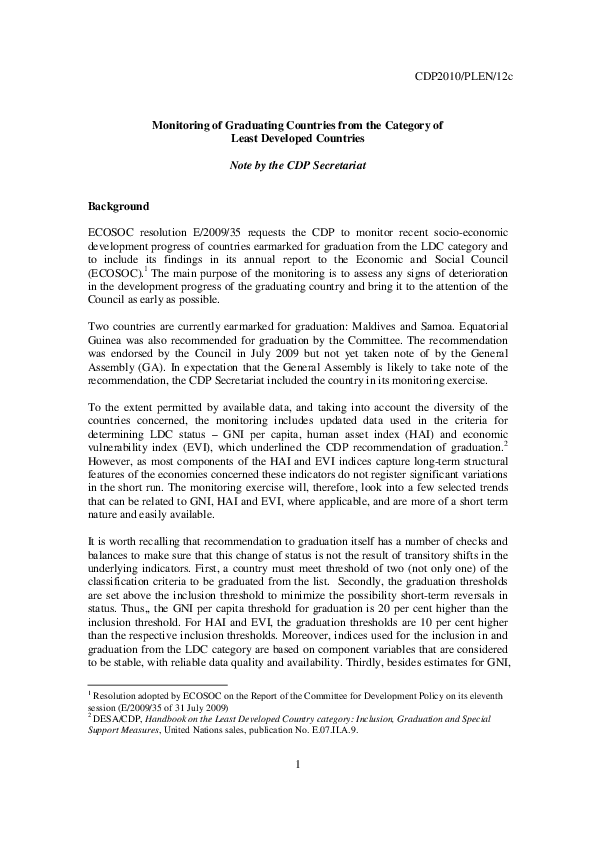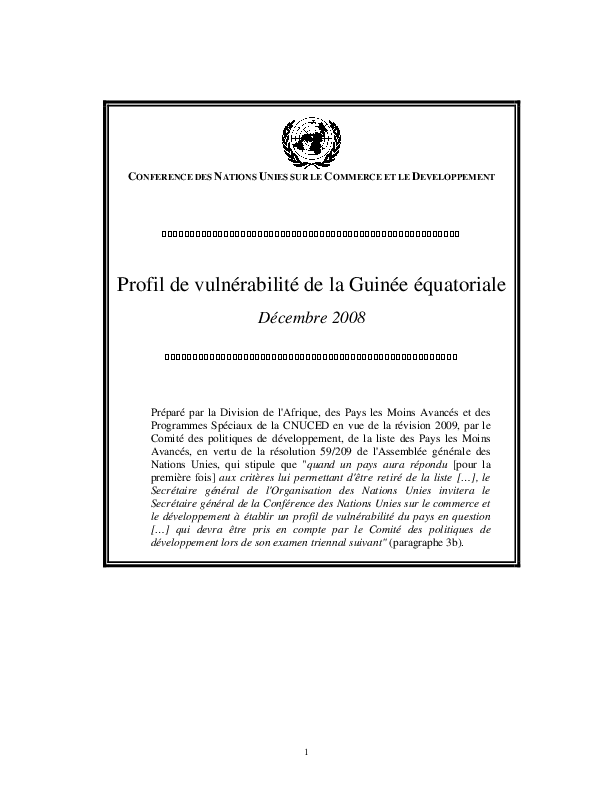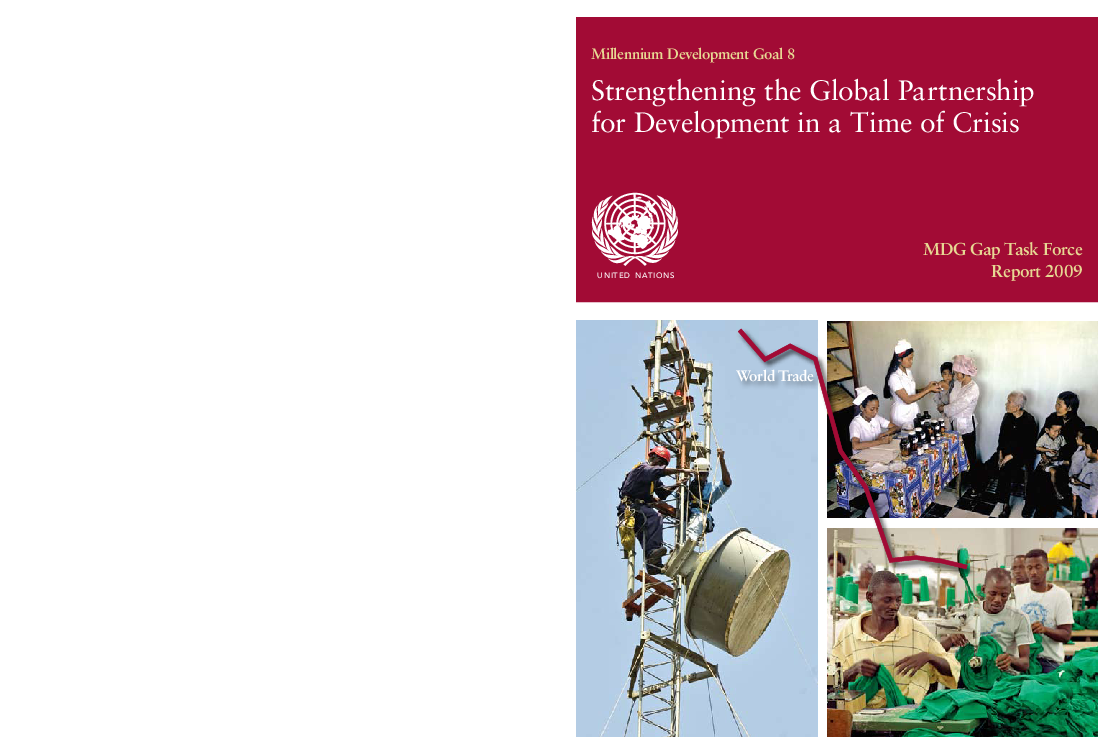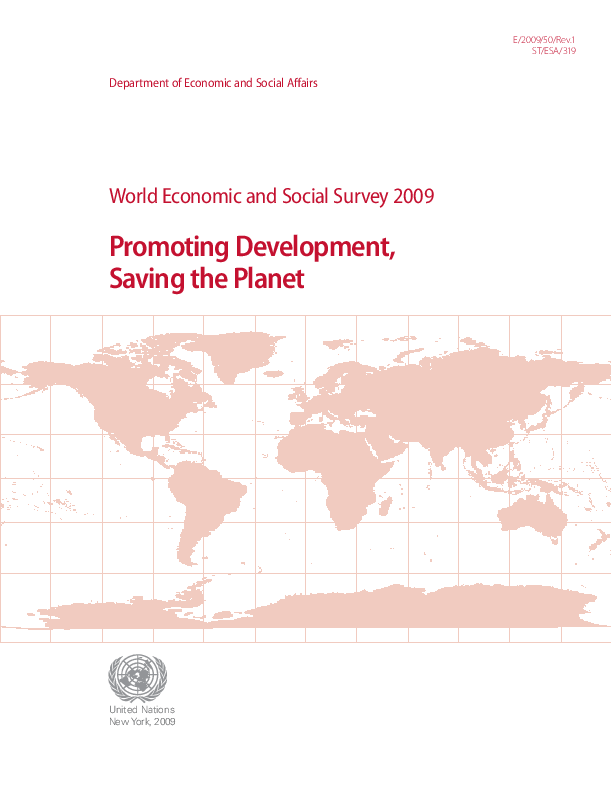Publications
Displaying 151 - 160 of 318
old issues, new directions? John Toye Download Paper Economic integration, inequality and growth: Theory and comparative assessment Giovanni Andrea Cornia Download Paper Energy Intensity, Greenhouse Gas, and Global Warming Lance Taylor Download Paper From Washington Consensus to Inclusive Growth:
The Continuing Relevance of Pro-Poor Policy Alternatives Alfredo Saad Filho Download Paper International Tax Cooperation and International
Development Finance Valpy FitzGerald Download Paper Labour Markets Trends, Financial Globalization and the current crisis in Developing Countries Rolph van der Hoeven Download Paper Making… Publications used in the preparation of the World Economic and Social Survey 2010
عربي, 中文, English,?Français, Русский, Español World Economic and Social Survey 2010: Retooling Global Development,?Overview (E/2010/50)
عربي, 中文, English,?Français, Русский, Español World economic situation and prospects as of mid-2010 (E/2010/73)
عربي, 中文, English,?Français, Русский, Español 2010 Reports to the Economic and Social Council
عربي, 中文, English, Français, Русский, Español CDP excerpts on the report by theme
Monitoring of countries graduating from the category of least developed countries ECOSOC resolution (E/RES/2010/9) on the Report of the Committee for Development Policy
English, Français, Español ECOSOC resolution (E/RES/2010/34) on on the Review of United Nations support for small island developing States
English, Français, Español GA resolution (A/RES/65/171) on the Fourth United Nations Conference on the Least Developed Countries
عربي, 中文, English, Français, Русский, Español GA resolution (A/RES/64/295) on the… 2010 CDP report, ECOSOC and GA resolutions
 Welcome to the United Nations
Welcome to the United Nations
